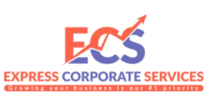
Singapore has always been very competitive with other countries in terms of tax policies such that we can attract foreign direct investments. The local government has established several policies such as the Tax Exemption Scheme, SME Cash Grant, Corporate Income Tax Rebate and Product & Innovation Credit (PIC) Scheme to do so.
Firstly, one distinct adjustment was the corporate tax rate. Previously, it was 20% before it was revised to 18% in 2008 and now, it has been adjusted to 17% since 2010. This drop in corporate tax rate entices more business including foreign businesses to operate in Singapore because of the attractive tax rate compared to other countries like Australia that has a higher tax rate of 30%.
Another tax incentive is that businesses can claim 100% exemption from tax if the business has under $100,000 of revenue. Also, of the next $200,000, the business can be exempted from 50% of taxes.
For example, if the company’s chargeable income is $300,000; they can receive a tax exemption of $100,000 for the first $100,000 ($100,000 x 100%) but only $100,000 ($200,000 x 50%) for the remaining $200,000.
In Singapore, the government has many measures and incentives such that people can easily incorporate businesses. In the Year of Assessment (YA) 2005, the government has drawn up a Tax Exemption Scheme with several incentives and bonuses to aid entrepreneurships of the tax burden.
As the business environment in Singapore is always changing, the tax exemption schemes have also adapted. For example, when there was an economic slowdown during the YA 2011 and 2012, the Singapore government had a new scheme, SME Cash Grant where business received a cash rebate on 5% of their revenue with a cap of $5,000.
As of the current YA of 2013, Singapore companies are granted a 30% Corporate Income Tax (CIT) Rebate that has a cap of $30,000 per YA. This means that companies gets to have a rebate of 30% of their tax at the end of the year. For example, if the company has a profit before tax of $1,000. The tax payable would be $170 (17% x $1,000). With this CIT Rebate, the company only need to pay $119 [(100% – 30 %) x $170]. This CIT Rebate would be granted for YAs 2013, 2014 & 2015.
In addition, companies can claim capital allowances which can be deducted to reduce tax. Only assets are allowed to claim for capital allowances with a 100% claim. For example, if the asset cost $1,000, the company can use this $1,000 as capital allowance to decrease the taxes paid.
To top it off, the Singapore government has implemented a new scheme in the recent years, the Product & Innovation Credit which allows you to claim enhanced capital allowances of 300% instead of the 100%. This has helped companies tremendously in reducing their cost.
The Singapore government has been continuously putting effort into implementing various tax reduction and exemption schemes such that businesses can operate with lower costs in Singapore. All these have shown prominent figures in the rise of SMEs and businesses operating in Singapore which brings about economic benefits for Singapore like employment and boosting our economy further.
